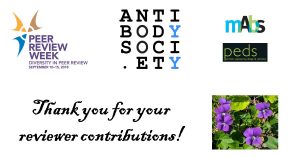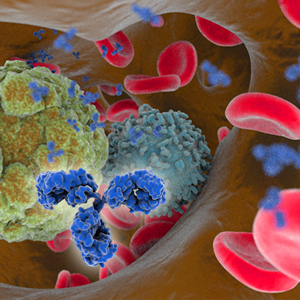 Peer Review Week is a global event celebrating the essential role that peer review plays in maintaining quality in scientific communication. The 4th Peer Review Week is being held September 10 – 15, 2018, focusing on diversity in peer review.
Peer Review Week is a global event celebrating the essential role that peer review plays in maintaining quality in scientific communication. The 4th Peer Review Week is being held September 10 – 15, 2018, focusing on diversity in peer review.
Peer review is an essential part of the manuscript evaluation process, which ensures that relevant, high-quality articles are selected for publication in our affiliated journals, mAbs and PEDS. We would like to thank all reviewers who have contributed their insights and advice for improvement of manuscripts submitted for publication in the journals. These experts invest substantial time and effort in the review of submitted manuscripts, and we sincerely appreciate their valuable input!





